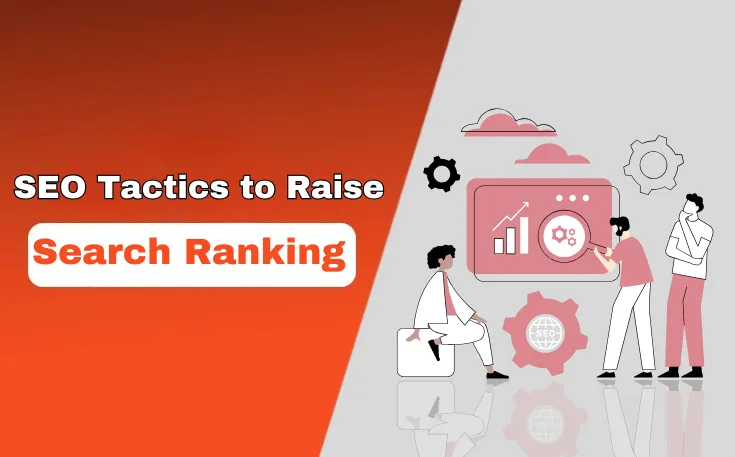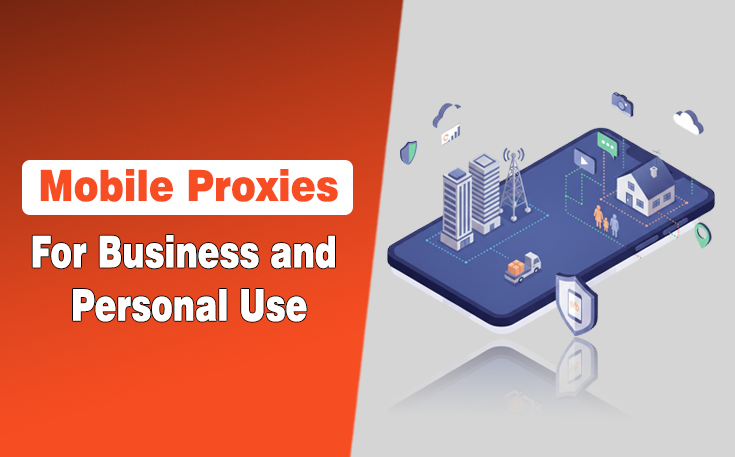Payroll management is the backbone of any business because when people aren’t paid right, nothing else runs smoothly. That’s where a Payroll Specialist comes in. Think of them as the quiet heroes behind the scenes, making sure every employee receives their paycheck on time and without errors.
In this guide, we will discuss what is payroll specialist. What do they do? What are the qualifications needed for the role, and salary expectations for their role? Let’s have a look.
What is Payroll Specialist?
A payroll specialist is a professional whose responsibility is to pay the company’s employees accurately and on time. They handle tasks such as calculating wages, processing payroll taxes, managing deductions for benefits, and maintaining payroll records.
Payroll specialists also ensure compliance with legal regulations and resolve any payroll-related issues. Their role is vital in keeping a company’s financial and HR operations smooth and error-free.
What Does a Payroll Specialist Do?
A Payroll Specialist is responsible for managing the entire payroll process — from collecting employee data to ensuring paychecks are delivered accurately and on time. Their role blends accounting, compliance, and human resource functions to keep everything running smoothly behind the scenes.
A Payroll Specialist typically handles:
- Payroll Processing: They calculate employees’ wages based on hours worked, overtime, commissions, and bonuses. This includes both salaried and hourly employees.
- Tax Deductions & Withholdings: They ensure that all applicable deductions are made, including federal, state, and local taxes, Social Security, Medicare, and other withholdings like retirement plans or health insurance.
- Pay Disbursement: They issue paychecks or direct deposits on time, weekly, biweekly, or monthly, depending on the organization.
- Timekeeping Records: Payroll specialists verify and manage timecards, attendance records, paid leave, sick days, and holidays.
- Compliance with Labor Laws: They stay up to date with payroll regulations and labor laws, ensuring the company remains compliant with tax codes and employment legislation.
- Handling Payroll Inquiries: They respond to employee questions regarding salary discrepancies, tax withholdings, benefits deductions, or direct deposit issues.
- Year-End Tasks: They prepare and issue W-2s, 1099s, and payroll reports needed for tax filing and internal audits.
- Software & System Management: They use payroll software (like ADP, Paychex, or QuickBooks) to automate calculations and maintain secure records.

What Qualifications Does A Payroll Specialist Require?
A payroll specialist needs a degree in finance, accounting, or human resources to get a handsome job in this field. Here are details of the requirements and qualifications.
Educational Requirements
To become a Payroll specialist, there is a minimum requirement of a high school diploma and an associate’s degree. But mostly, businesses prefer the candidate with a bachelor’s degree in accounting, finance, human resources, or a related field.
In some cases, certificates like Level 1 or Level 2 in bookkeeping, payroll, or a Chartered Institute of Payroll Professionals (CIPP) qualification (for UK-based roles) are highly valued.
Professional Experience
While direct payroll experience is not mandatory for entry-level roles, having 2-3 years of experience in payroll processing, HR, accounting, or bookkeeping can significantly boost a candidate’s profile.
Experienced payroll specialists often require less training and can handle complex payroll operations, including global payroll tax and compliance management.
What Skills Does A Payroll Specialist Require?
- Payroll and Tax Knowledge: Understanding of payroll regulations, taxes, PAYE procedures, and local labor laws is essential for compliance and accuracy.
- Mathematical Skills: Strong numerical ability is necessary for calculating wages, deductions, bonuses, and taxes precisely.
- Computer Proficiency: Expertise in office software like Microsoft Excel (especially VLOOKUP), Google Sheets, Oracle Payroll, QuickBooks, and ADP is crucial.
- Attention to Detail: Payroll specialists must maintain error-free records, quickly spot discrepancies, and ensure precise data entry and processing.
- Organizational Skills: Ability to manage multiple deadlines and deliverables simultaneously without compromising on accuracy or compliance.
- Communication and Interpersonal Skills: Payroll specialists need strong written and verbal communication abilities to address employee queries and collaborate with HR and finance teams.
- Analytical Skills: The role requires auditing payroll data, analyzing reports, and ensuring compliance through careful data assessment.
- Problem-Solving Abilities: Quick decision-making and escalation of payroll issues when necessary are key traits.
- Confidentiality: Handling sensitive financial and personal information responsibly and maintaining strict confidentiality at all times.
- Flexibility and Adaptability: Ability to handle fast-paced work environments and willingness to put in extra hours during payroll deadlines, month-end, and year-end reporting.
Skills that May Boost Payroll Specialist Profile
- Experience with HRMS (Human Resource Management Systems) is a strong advantage.
- A proactive, self-motivated attitude and ambition to develop professionally.
- Familiarity with managing MNC (Multinational Company) payrolls is considered a plus.
- Ability to adapt quickly to changing business needs while maintaining accuracy and compliance.
What are the Major Responsibilities of a Payroll Specialist?
A payroll specialist key responsibilities include:
- Process employee salaries, bonuses, and deductions accurately and on schedule.
- Maintain and update payroll records, tax documents, and employee data.
- Ensure compliance with federal, state, and local payroll regulations.
- Calculate taxes, benefits, commissions, and other deductions.
- Handle discrepancies, salary adjustments, and employee queries related to payroll.
- Collaborate with HR and Finance teams to gather and verify timesheets and attendance data.
- Prepare payroll reports for internal use and for external audits when needed.
- Manage direct deposits, pay cards, and physical paycheck distribution.
- Stay updated with labor laws, tax legislation, and industry payroll practices.
- Generate and submit quarterly and annual tax reports.
- Implement and maintain payroll systems and suggest improvements for better efficiency.
- Support new hire onboarding by setting up payroll information and benefits enrollment.
Salary Expectations for Payroll Specialists
The salary of a payroll specialist can vary depending on experience, geographic location, industry, and company size. Payroll specialists generally receive good compensation, considering the critical role they play in maintaining employee satisfaction and regulatory compliance.
Median Salary by Region
- North America: In the United States and Canada, payroll specialists typically earn a median annual salary between $45,000 and $60,000. Salaries can be higher in large metropolitan areas or for specialists with advanced certifications.
- Europe: Salaries across Europe vary based on country and economic conditions. In Western European countries like Germany, France, and the UK, payroll specialists generally earn between €35,000 and €50,000 annually, with opportunities for higher earnings in major financial hubs.
- Middle East and North Africa (MENA): In the MENA region, payroll specialists in countries like the UAE, Qatar, and Saudi Arabia often earn between $40,000 and $55,000 annually. Salaries can be higher for specialists handling multinational payroll operations.
- Asia-Pacific: In developed markets like Australia, Singapore, and Japan, median payroll specialist salaries range from $40,000 to $55,000 or more per year. In emerging markets like India, Indonesia, and Vietnam, salaries are comparatively lower but continue to grow due to increasing demand for skilled payroll professionals.
In the USA, the average salary of a payroll specialist is $25.75 per hour.
Some More Factors That May Affect Payroll Specialist Salary
Several factors can cause significant variations in payroll specialist salaries, even within the same region:
- Company Size: Larger corporations or multinational companies often offer better salaries and benefits compared to small or mid-sized businesses. Organizations usually compensate higher skill levels accordingly, as managing payroll for a large workforce or across multiple countries requires advanced expertise.
- Industry Differences: Certain industries offer higher payroll salaries. For example, payroll specialists in healthcare, manufacturing, and financial services tend to earn more due to the complexity and volume of their payroll processing needs.
- Experience Level: Payroll specialists with several years of hands-on experience, especially those who have managed end-to-end payroll cycles, typically command higher salaries than entry-level specialists.
- Location Within Country: Urban centers and economically strong regions tend to offer higher salaries compared to rural areas. For instance, payroll specialists in cities like New York, Toronto, or London typically earn more than those in smaller towns.
- Certifications: Holding professional certifications like the Certified Payroll Professional (CPP) can boost a payroll specialist’s earning potential significantly. Certifications validate expertise and make candidates more competitive.
Top Tools and Software Payroll Specialists Use
Let’s have a look at some tools and software that payroll specialists use to simplify the process. When choosing a payroll software, consider factors like the size of your business, specific payroll needs, and budget to select the most suitable option.
List of Tools and software for Payroll specialists
| Tools/Software | Key Features | Pros | Cons |
| APS Payroll | Helps manage pay and HR tasks- Checks for mistakes- Handles taxes correctly | No tax worries- Finds errors early- You can try a demo first | No fixed price, you have to ask |
| Gusto | Very easy to use- Pays workers in many states- Let workers see their own info | Full service for payroll- Great customer support- Best for small businesses | Advanced features are available only in higher-tier plans |
| Justworks | Payroll and HR in one- Helps with hiring and leave tracking | 24/7 customer help- Super easy to use- Grows with your business | No free trial or demo |
| Intuit QuickBooks Online | Pays workers and files taxes automatically- Gives employees their own login | Very fast payments- Free for the first 30 days- Works great with QuickBooks accounting | Higher-tier plans needed for time tracking and 24/7 support |
| OnPay | Good for many types of businesses- Deals with taxes for tips and nonprofits too | Works for restaurants, charities, and big teams- Full payroll features | Specific pricing details not provided |
| Rippling | Pays workers automatically- Works for US and international teams- You can add more features if needed | Runs payroll fast with one click- Pays in many ways- Helps with tips and time cards | Pricing details require direct inquiry |
| Namely | All-in-one HR and payroll app- Let workers clock in/out- Mobile app available | Calculates benefits easily- Great reports- Good for medium-sized businesses | Pricing requires a custom quote |
| Patriot | Great for small companies- Free direct deposit- Unlimited payments each month | Very affordable- Easy to set up- Can add HR and attendance tools if needed | Advanced tax filing features in a higher-tier plan |
| Workful | Payroll and HR together- Tracks time and expenses | Very easy payroll setup- Try free for 30 days- Simple pricing | Additional monthly fee per employee |
| Wagepoint | Good for very small businesses- Easy direct deposit- Safe and private | Pricing is clear- Very secure- Easy reports | Limited to businesses with up to 100 employees |
Career Path of a Payroll Specialist (Step-by-Step)
If you’re good with numbers, love being organized, and want a stable job with growth potential, becoming a Payroll Specialist is a great start.
Here’s how your career can grow over time:
1. Start as a Payroll or HR Assistant
This is your entry point. You’ll help with timekeeping, data entry, and learn the basics of payroll. It’s like learning to drive before you hit the highway.
2. Become a Payroll Specialist
Once you understand how payroll works, you’ll take charge of processing paychecks, managing taxes, and making sure everyone gets paid on time. You’ll start using payroll software like ADP or QuickBooks regularly.
3. Move Up to Senior Payroll Specialist or Analyst
With a few years of experience, you’ll handle more complex payroll systems, like paying employees in different states or countries, managing audits, or analyzing payroll trends.
4. Step Into the Payroll Manager or Supervisor Role
Now you’re leading a team! You’ll set policies, approve payroll runs, solve big issues, and make sure your department runs smoothly.
5. Advance to Director or Head of Payroll
This is the top of the ladder. You’ll design payroll strategies for the whole company, manage vendor relationships, and work closely with HR and finance leaders.
Sum Up
Well, all these details are about payroll specialist, their roles, salaries, and career paths. Payroll specialists just push buttons — they ensure one of the most important parts of any employee’s life is taken care of: getting paid accurately and on time. It’s a job that requires precision, confidentiality, and a whole lot of patience. But it’s also incredibly rewarding.
If you’re someone who loves details, enjoys working with numbers, and wants a career where your work truly matters every single week, then stepping into the role of a payroll specialist might just be your next smart move.
People Also Ask
What qualifications do you need to be a payroll specialist?
Typically, a bachelor’s degree in accounting, finance, or HR is preferred. Practical payroll experience and certification from recognized institutions like the American Payroll Association can also help significantly.
What are the working hours of a payroll specialist?
Payroll specialists usually work standard 9-5 hours. However, additional hours may be needed during peak payroll periods, year-end reports, or tax seasons.
Can a payroll specialist work remotely?
Yes, many companies now offer remote payroll jobs, especially with cloud-based payroll systems like Keka and Deel. Remote work is increasingly common in the payroll field.
How long does it take to become a payroll specialist?
If you already have a degree, gaining practical experience and earning certifications can make you job-ready within 1-2 years. Some start in junior roles and transition to specialist positions as they gain experience.
Need custom app with amazing features?
Get a Quote




